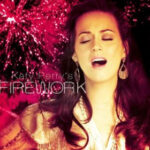It’s often said that starting with historical context can alienate a modern audience. However, the enduring power of “The World Turned Upside Down” lies precisely in its historical roots. This song, opening with the stark declaration “In 1649…”, manages to feel both ancient and incredibly relevant even today.
The lyrics transport us back to the tumultuous era of the English Revolution and introduce us to the Diggers. This radical group, led by the visionary Gerard Winstanley, established a communal agricultural settlement on St George’s Hill near Weybridge in Surrey. Imagine a group in 17th century England attempting a social experiment, advocating for land ownership to be shared amongst everyone. That’s exactly what the Diggers were doing. Their story, though short-lived due to violent opposition from local landowners, is powerfully encapsulated in this song. You can catch a glimpse of Winstanley in this clip from a 1970s film about the Diggers’ movement.
Billy Bragg, a prominent voice of protest music, brought the Diggers’ story back into the spotlight in 1985. His recording of “The World Turned Upside Down” on the “Between the Wars” EP resonated deeply, released as it was during the pivotal miners’ strike – another significant moment of social struggle in British history. Bragg’s version became an anthem of sorts, connecting the historical fight of the Diggers with contemporary battles for social justice.
However, the song wasn’t born in the 1980s. Leon Rosselson penned “The World Turned Upside Down” a decade earlier, in 1975. Rosselson, a veteran of crafting politically charged and satirical songs since the 1960s, drew inspiration from Christopher Hill’s historical work on radical 17th-century movements. While Billy Bragg’s rendition is known for its fiery energy and punk-infused folk sound, Rosselson’s original version (listen here) carries a gentler, more traditional folk sensibility. It was Rosselson who skillfully weaved Winstanley’s powerful words – the earth should be ‘a common treasury for all’ – into the very heart of the song’s lyrics. The result is a remarkable piece of songwriting: part history lesson, part rallying cry, and unexpectedly, a compelling song in its own right.
Despite the widespread popularity of Bragg’s version, which even charted at No. 15, Rosselson remained good-natured. He noted the interesting phenomenon of his song being mistaken for a traditional folk song, or attributed directly to Billy Bragg, acknowledging it as “fame of a sort.”
“The World Turned Upside Down” has been interpreted by numerous artists, including notable folk musicians like Roy Bailey (listen) and Dick Gaughan (listen). Rosselson and Bailey even collaborated on an early recording (listen) featuring Martin Carthy on guitar, released on the 1975 album “That’s Not The Way It’s Got To Be”. Even the band Chumbawamba recorded a version, though they took liberties with the lyrics, changing “we need no swords” to “we take up swords,” which reportedly irked Rosselson. However, Rosselson’s own lyrics aren’t without their own subtle force, including the pointed lines: ‘You poor take courage/ You rich take care’.
St George’s Hill, the historical site of the Diggers’ commune, underwent a dramatic transformation in the centuries following the English Revolution. By the 20th century, it had become an exclusive enclave, home to a golf course and luxury mansions. Intriguingly, John Lennon purchased a house there, called Kenwood, after The Beatles relocated south from Liverpool.
This Lennon connection offers a fascinating perspective on “The World Turned Upside Down.” One could see it as a less idealistic, more grounded counterpart to Lennon’s famous anthem, “Imagine.” Where “Imagine” invites us to dream of a world without possessions or countries, Rosselson’s lyrics (via Winstanley and Bragg) declare “All things in common, all people one.” Both songs are rooted in idealism, but “The World Turned Upside Down” celebrates historical figures who actively fought for their ideals, not just imagined them.
The lyric, ‘… and no religion too’ in “Imagine” has gained increasing relevance over time. However, “The World Turned Upside Down,” emerging from a historical context where atheism was barely articulated, presents a more specific critique of religious institutions: ‘The clergy dazzle us with heaven/ Or they damn us into hell/ We will not worship the god they serve/ The god of greed who feeds the rich while poor men starve.’ These lines directly challenge the role of religious authority in perpetuating social inequality.
While it’s perhaps wishful thinking to imagine Lennon drawing direct inspiration from the history of his St George’s Hill estate for “Imagine,” the resonance between the two songs is undeniable. Ultimately, through the combined efforts of Leon Rosselson and Billy Bragg, the Diggers’ name and their vision of a world turned upside down, in the best possible sense, continues to resonate. As the song itself declares: ‘They were dispersed but still the vision lingers on.’ This enduring vision, captured in powerful lyrics and compelling melodies, ensures that “The World Turned Upside Down” remains far more than just a historical footnote; it’s a living, breathing call for a more just world.
Chris Taylor, a writer for the Guardian US and author of books on Caribbean and Latin American history and culture, provides insightful commentary on music and its social context.


